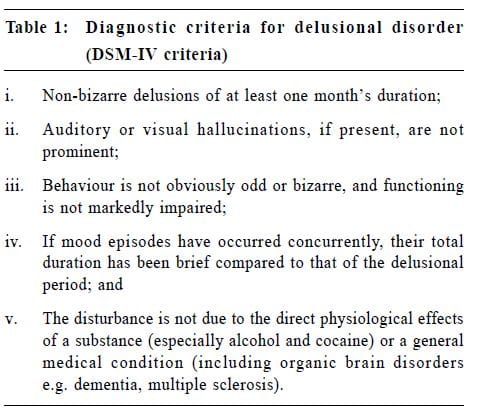
“They’re out to get me.” It might sound far-fetched to some, but for those living with persecutory delusions, this belief feels deeply real. From thinking the neighbour’s watching to fearing hidden agendas at work, these thoughts can take over daily life.
Let’s explore the meaning of persecutory delusions and how to recognise what’s happening, without judgment.
What Are Persecutory Delusions?
Let’s start with the basics.
Persecutory delusions are strong, fixed beliefs that someone is trying to harm you, even when there’s no real proof. It might be a fear that you’re being watched, followed, talked about, or plotted against. These aren’t just passing worries or worst-case-scenario thoughts. They’re deeply rooted and can take over a person’s thinking, much like intrusive thinking can dominate mental space.
So, what’s the meaning of the delusion of persecution?
It’s a type of delusional thinking where the mind misreads neutral situations as threatening. A stranger glancing at you in a café suddenly feels like surveillance. Or a co-worker’s laughter feels like it’s at your expense.
Where does it show up?
Persecutory delusions often appear in mental health conditions like schizophrenia, delusional disorder, or severe depression with psychosis.
Understanding them means stepping into that reality with compassion, not correction.
Common Signs and Symptoms

Persecutory delusions often start as quiet doubts, a strange look, an odd pause in conversation, and gradually spiral into full-blown paranoia.
Here are some signs that may point to persecutory delusions:
Persistent belief of being targeted: Feeling convinced that someone (or a group) is trying to harm, harass, spy on, or sabotage you, despite a lack of evidence.
Mistrust and suspicion: Struggling to trust others, even those close. Everyday interactions may feel loaded or staged.
Reading hidden meaning into things: Interpreting neutral events as direct threats or personal attacks.
Withdrawing from people or places: Avoiding situations, jobs, or relationships due to fear of being followed, monitored, or harmed.
Increased anxiety or agitation: Living in a constant state of alertness, scanning for signs of danger, or reacting strongly to perceived threats.
Did you know?
A persecution complex isn’t the same as delusions of persecution; one reflects a pattern of thinking, the other is a clinical symptom.
These paranoid symptoms and anxious delusions can feel very real to the person experiencing them. Recognising these signs is the first step, for yourself or someone you care about.
Why Do People Experience Persecutory Delusions?
There’s no single cause, and it’s not anyone’s fault. Persecutory delusions can develop for several reasons, and often, it’s a combination of factors. Let’s break it down.
Genetic Factors
Some people may have a genetic predisposition to mental health conditions linked to delusions. If there’s a family history of schizophrenia or similar disorders, the risk may be slightly higher.
Chemical and Brain Function Changes
Neurobiologists have found that specific chemical imbalances in the brain, particularly involving dopamine, can influence how we perceive threats or connect ideas. These changes may play a role in false persecution beliefs.
Did You Know?
In some cases, substance use, especially stimulants or hallucinogens, can trigger delusional episodes or make existing symptoms worse.
Trauma and High Stress
Past trauma, emotional neglect, or ongoing stress can leave the brain in a heightened state of alert. For some, this can tip into delusional belief systems, especially when combined with isolation or fear.
Underlying Mental Health Conditions
Persecutory delusions often appear as a symptom of conditions like schizophrenia, delusional disorder, bipolar disorder (during manic or depressive episodes), or severe depression with psychotic features.
Did You Know?
Certain medical conditions or prolonged sleep disruption can also affect how the brain processes reality, though these are far less common causes.
A psychiatric professional or mental health researcher is best placed to explore how these pieces fit together for each person.
How Are Persecutory Delusions Identified?
Persecutory delusions often feel real, not just imagined, which makes diagnosis both delicate and essential.
What professionals look for
A psychiatrist, clinical psychologist, or mental health practitioner will assess whether the beliefs are:
Fixed (held firmly despite evidence to the contrary),
False (not based in reality), and
Impactful (disrupting relationships, work, or safety).
These are key criteria for diagnosing a delusional disorder, persecutory type, as outlined in the DSM-5 (Diagnostic and Statistical Manual of Mental Disorders, Fifth Edition), the clinical guide used by mental health experts worldwide.
What the assessment involves
Clinical interview: A guided conversation covering thoughts, fears, past mental health, and day-to-day functioning.
Mental status exam: Observing how a person thinks, speaks, and interprets the world.
Differential diagnosis: Ruling out other causes like substance use, trauma-related symptoms, or medical issues (e.g., neurological illness, dementia).
Collateral input: If needed, insights from family or caregivers help build a clearer picture.
Why professional diagnosis matters
Delusional thinking can overlap with many other mental health issues, from anxiety to schizophrenia. A clear diagnosis helps professionals choose the right treatment path, whether therapy, medication, or both.
Treatment Options and Coping Strategies
Living with persecutory delusions can feel isolating, but treatment can help bring relief, clarity, and support.
Medical Treatment
For many, antipsychotic medication is a key part of care. These medications help adjust brain chemicals like dopamine, which may contribute to delusional thinking and mental health paranoia. Commonly used medications include risperidone, olanzapine, and aripiprazole.
Psychological Therapies
Cognitive Behavioural Therapy (CBT) is often recommended and helps individuals:
Identify and examine persecutory thoughts
Learn to question and reframe these beliefs
Build tools to reduce anxiety and regain confidence
Lifestyle and Daily Support
Routine, structure, physical health, and social connection play a big role. A mental health counsellor may work alongside the main care team to offer everyday coping tools, from managing stress to rebuilding trust in relationships.
Seeking Help Is a Strength, Not a Stigma
Persecutory delusions can feel all-consuming, not just for the person experiencing them, but for those trying to help. But understanding the condition is the first step toward making space for empathy, treatment, and recovery.
If you or someone you care about is struggling with persecutory thoughts, know that support is out there. At Pyng, we believe in connecting people to the right professionals because help can truly change lives.
Understanding persecutory delusions starts with awareness, and healing begins with support.




